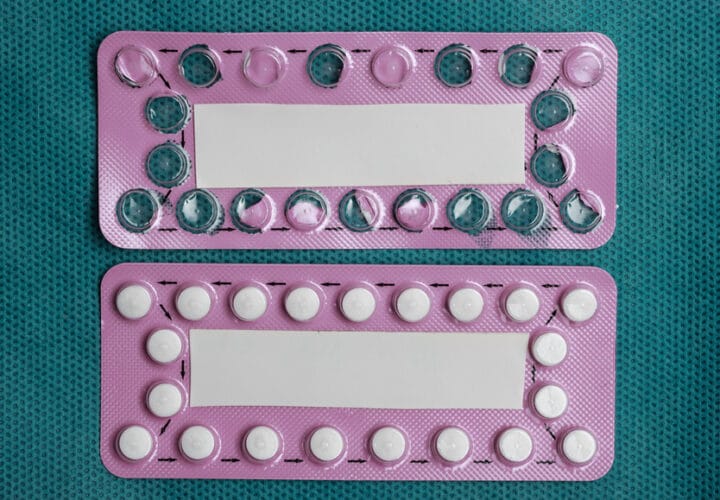Women who spend less time in their reproductive years—those who get their period later, start menopause early or have a hysterectomy—may have a greater risk of dementia later in life, according to a new study published in the journal Nature.
The study looked at over 6,000 women in Northern California who were all members of the same health insurance group. They were given health exams and completed a survey asking about their period history. When researchers tallied the numbers, they found:
- Participants’ average age of the first period was 13
- The average age of menopause was 45
- Average total number of reproductive years was 32
- 34 percent reported a hysterectomy
When they looked at women who did not have a hysterectomy, the average age of menopause was 47 and the average total number of reproductive years was 34.
Researchers then compared the reproductive data with the incidence of dementia in the group, which was 42 percent in total. They found that women who got their first period at age 16 or older had a 23 greater risk of dementia than those with an average age of 13 at their first menstrual cycle.
Women who went through menopause before the age of 47 had a 19 percent increase in risk of dementia when compared to women who went through menopause after the age of 47.
Total reproductive years—from the time of a woman’s first period to the start of—also had an effect on dementia risk. Those with fewer than 34 years had a 20 percent increase in their dementia risk.
Women who had hysterectomies—limiting the amount of estrogen in their bodies—had an eight percent greater risk of dementia than those who did not.
The study highlights what we already know: Women are much more likely to face dementia than men. This study shows that it may have something to do with the amount of estrogen a woman produces.
“Since women are 50 percent more likely to develop dementia over their lifetimes than men, it’s important to study any risk factors that are specific to women that could eventually lead us to potential points of intervention,” said study author Paola Gilsanz, of Kaiser Permanente Division of Research in Oakland, Calif.
Scientists have turned a spotlight on estrogen’s effect on memory in recent years, though they haven’t been able to tease out the exact connection.
“We know that the hippocampus and the prefrontal cortex, areas of the brain that are rich in estrogen receptors and are key to our success in remembering, respond differently to fluctuations in estrogen, whether it follows removal of the ovaries, which is done surgically in some women, or across the menstrual cycle,” Pauline Maki, Ph.D., a professor of psychiatry and psychology at the University of Illinois at Chicago, told Being Patient.
That’s why some people report experiencing brain fog or memory problems around the time they enter menopause.
Neuroscientist Gillian Einstein, Ph.D., said that estrogen is necessary to help neurons grow and communicate. Menopause doesn’t always mean a drop in memory performance—but it can if the drop in estrogen is steep, said Einstein.
“If you don’t end up too different than where you started, you’re probably in pretty good shape,” Einstein said to Being Patient. “If you have a big drop in estrogen, then that might be a problem.”
It’s clear that men and women likely have different paths to dementia. Scientists are now sensitive to this fact—and the research is starting to reflect that.
“Of the 850,000 people living with dementia in the UK, 65% are women, but we still haven’t got a clear picture as to why there’s an imbalance. It’s impossible to draw a direct connection between fewer reproductive years and heightened dementia risk from this study, but the findings do add support to evidence we have so far,” said Fiona Carragher, chief policy and research officer at Alzheimer’s Society.
Carragher points out that the model of this study does not consider various reproductive events and medications women might experience during her lifetime.
“Previous studies suggest levels of the female hormone estrogen throughout women’s lives may be connected with dementia risk, but results have been conflicting and this study doesn’t take into account the impact of pregnancies, hormone replacement therapies, birth control or genetics,” she said. “Finding answers as to why women are at greater risk of dementia must be prioritized.”




Interesting, considering that other studies, namely the Rotterdam Study from the Netherlands, found that a longer reproductive lifespan (>39 years of menstrual cycles) were linked to doubled risk of both Alzheimer’s and vascular dementia compared to <34 years of cycles. Moreover, artificial menopause (surgical or chemical) was linked to a non-significant 19% lower risk for AD. In addition to the recent data also linking 5 or more full term pregnancies to greater dementia risk, compared to <3, the bulk of the evidence suggests that it is prolonged estrogen exposure that is a risk factor, not a protective. Clinical trial and observational studies on HRT (WHI and the recent Finnish cohort) show higher dementia risk with hormone use, and higher endogenous estradiol after menopause is a risk factor for stroke, AD, and VaD.